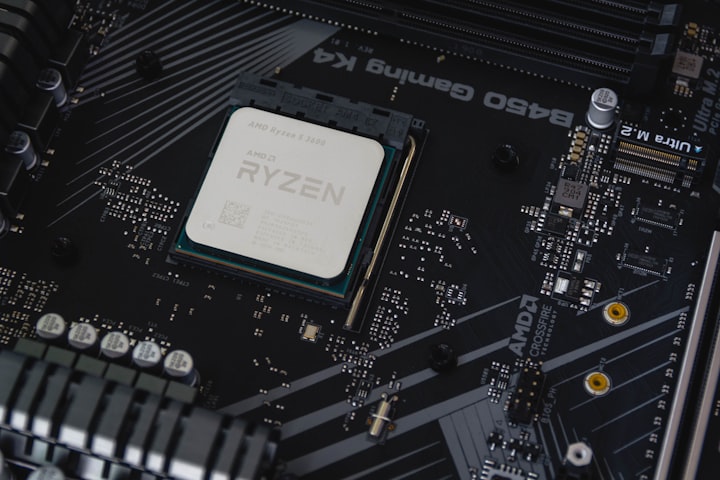Is There a Shortage Of Semiconductor Chip?
Is There a Shortage Of Semiconductor Chip?

The chip shortage is a consequence of the COVID 19 pandemic and increased demand for personal electronics such as mobile phones and laptops where chips are used, to the point that the production can not keep up with demand. In April, TSMC, which makes chips for Apple, Qualcomm and many other major technology companies, warned that the bottleneck could last until 2022, though it is unclear how Taiwan's outbreak will affect this estimate. TSMC, however, said it would not be affected, according to the WSJ.
In March 2020, the global pandemic caused car manufacturers, suppliers and dealers to close. Analysts fear the shortage of car chips will spill over into consumer electronics and affect production by Christmas. Automakers, which had experienced an earlier recession, canceled orders for parts such as computer chips because they believed auto sales would slump, said Michelle Krebs, senior analyst at Autotrader.
Microchips, once revered as the brains of modern society, have become their biggest headaches. In 1990, 37% of chips were produced in American factories, but by 2020 that figure had dropped to 12%. Because chips are a critical component of many strategic technologies, from renewable energy to artificial intelligence to robotics and cybersecurity, their manufacture has become a geopolitical thorn in the side.
The entire global automotive industry has bought $37 billion worth of chips, with major players such as Toyota and Volkswagen spending more than $4 billion, making them relatively insignificant among semiconductor suppliers. The chip shortage is expected to lead to widespread bottlenecks in electronics, medical devices, technology and networking equipment. It takes two years to open complex semiconductor factories and manufacturers raise prices for the second time in less than a year.
In response to the chip shortage, Taiwan Semiconductor Manufacturing Company (TSMC) is the world's largest semiconductor manufacturer, and has increased its investment budget for 2021 by $2.8 billion. As Reuters reports, automakers and medical device manufacturers are asking Biden to subsidize the construction of new U.S. semiconductor manufacturing capacities. However, financing the construction of new semiconductor factories is a process lasting at least five years.
Intel is pushing for government support to build a new chip factory in the US. The US is a world leader in the development of semiconductors, but has outsourced chip production to low-wage countries. If the U.S. wants onshore chip production, it needs not only a wafer factory, but also a plant to turn raw wafers into end products, Maire said.
These systems transform raw wafers into end products, which means that the systems can cut the wafer and package individual chips so that they are ready to go onto printed circuit boards. But chips are used in many other products: products that use chips, such as cars and smartphones, use much more chips themselves. In addition to cars, smartphones and computers, chips are also used in a range of household appliances such as televisions, washing machines and refrigerators.
Today, the shortage affects much more than cars, computers and smartphones, because the chips we consider "high-tech" are not. Demand for these parts is so high that some are able to sell old components for more than they would have bought for new ones. The chip restrictions are driving up vehicle prices in the United States, and dealers have only a fraction of the typical inventory.
The US is the leading producer of semiconductor chips and the world's largest chip maker, but there is also Taiwan, which has its share of problems. There are fears that mainland China could take military action against Taiwan as part of its takeover of the chip industry. Due to the shortage of semiconductor chips, the automotive industry expects sales to increase to $110 billion in 2021.
Mr O'Donnell said that given the ubiquity of semiconductors, the entire economy was at risk from the secondary effects of a chip shortage. When bottlenecks occur, chip manufacturers are unable to meet demand and leave money on the table. If a farmer does not get a new milk machine because he lacks chips, his costs will rise and this will have an impact on the price of milk.
The history of chip industries is marked by periods when they built so many factories that there was a glut of chips and then built too few factories and there is a shortage of chips. Manufacturers had to redesign their products to accommodate bottlenecks in certain chips, or leave design options open to incorporate alternative chips into the design. There are a lot of problems in assessing and forecasting demand, which can be difficult.
Many semiconductor contract foundries have moved from producing mature chips for the automotive industry to producing more advanced and emerging chips for the consumer electronics industry, such as 5G, which requires higher prices. Automakers are seeking to limit inventory of parts, including semiconductors, over time to reduce costs. After the earthquake in Japan in 2011, there was a serious chip shortage in the NAND memory for displays.
Chip bottlenecks were an issue during the company's first-quarter earnings season. Global chip production is monopolized by a few global and Asia-Pacific suppliers, said Joe McCabe, CEO of AutoForecast Solutions LLC. The chip deficit is further aggravated by a fire at a plant of the chipmaker Renesas Electronics in Japan.
Elon Musk, the Tesla (TSLA) boss, called the global semiconductor shortage during the electric car maker's conference call with analysts a "huge problem ". Chief financial officer of General Motors (GM) Paul Jacobson said the company expects major production disruptions in the second quarter due to chip shortages. The severity of the global chip shortage has increased significantly in recent weeks and it appears that millions of people are affected.
Alan Priestley, an analyst at Gartner, told CNBC that the average person will inevitably be affected by the global chip shortage in some form or another. As technology advances, semiconductor chips have spread from computers and cars to toothbrushes and tumble dryers and now lurk underneath the hood of a surprisingly large number of products. As demand for chips continues to outstrip supply, automakers are no longer the only companies feeling the pinch.






Comments
There are no comments for this story
Be the first to respond and start the conversation.